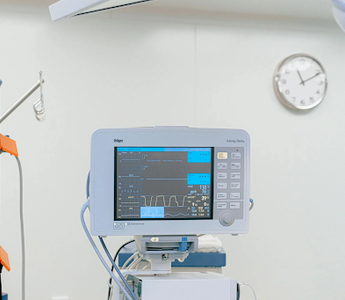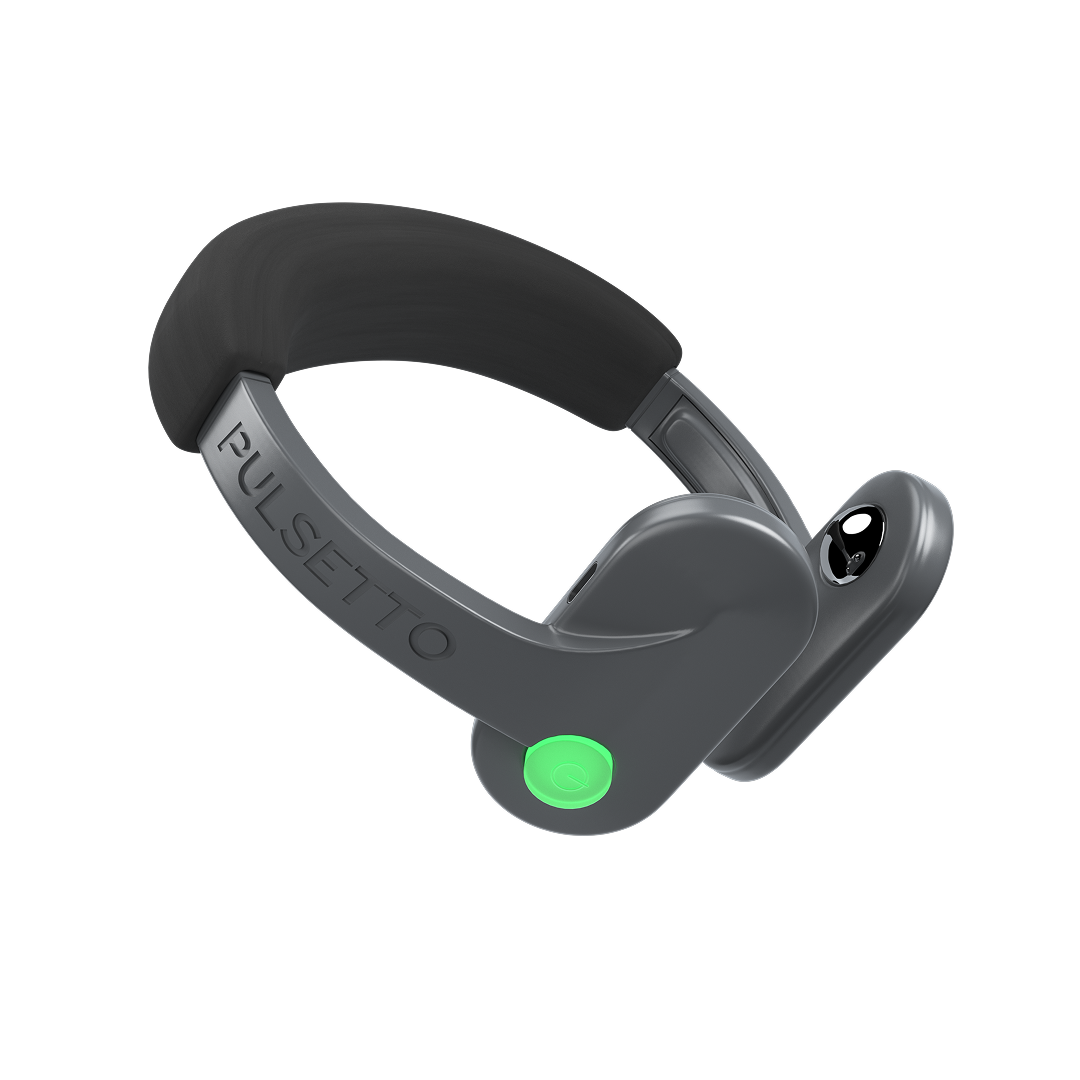Key Takeaways
- Vagus Nerve Stimulation (VNS) can help manage heart rate and reduce stress, anxiety, and insomnia.
- The vagus nerve plays a crucial role in regulating heart rate by activating the parasympathetic nervous system.
- HRV exercises, breathing techniques, and cold showers can naturally improve heart rate variability (HRV).
- Pulsetto is a non-invasive VNS device that offers quick and effective stress relief and is a valuable tool for heart rate management.
Vagus Nerve Stimulation and Heart Rate
The heart rate is a fundamental measure of cardiovascular health. It refers to the number of times your heart beats in a minute, often abbreviated as BPM (beats per minute).
Heart rate varies from person to person and can be influenced by factors like age, fitness level, and overall health. For most adults, the normal resting heart rate ranges from 60 to 100 BPM. Athletes or highly active individuals may have lower resting heart rates, sometimes as low as 40 BPM, indicating more efficient heart function.
Monitoring your heart rate regularly can help you spot health issues early. For example, consistently high resting heart rates may signal underlying health problems like stress or cardiovascular disease.
Heart Rate vs Heart Rate Variability
While heart rate gives you an idea of how fast your heart is beating, heart rate variability (HRV) measures the variation in time between each heartbeat. A higher HRV score indicates a well-functioning autonomic nervous system and better cardiovascular health.
- Heart Rate: Number of beats per minute.
- Heart Rate Variability: Variation in time between heartbeats.
High HRV is generally a sign of good health, while low HRV can indicate stress, fatigue, or underlying health issues. Improving HRV can lead to better heart health and overall well-being.
Role of the Vagus Nerve in Heart Rate Regulation
The vagus nerve is a critical component of the parasympathetic nervous system—often known as the "rest and digest" system. It extends from the brainstem to the abdomen, innervating major organs, including the heart. When the vagus nerve is activated, it releases neurotransmitters that slow down the heart rate and promote relaxation.

3D representation of the vagus nerve
By stimulating the vagus nerve, you can activate the parasympathetic nervous system, leading to a decrease in heart rate and an increase in HRV. This makes vagus nerve stimulation (VNS) an effective way to manage heart health.
A 2023 study monitored the effects of VNS on blood pressure and heart rate in patients with pharmacoresistant epilepsy. It involved 24-hour blood pressure monitoring before and after VNS device implantation.
Results showed a significant reduction in mean heart rate from 77 bpm to 71 bpm in older patients after implantation. However, younger patients did not show any significant changes. The study concluded that while VNS did not significantly alter blood pressure, it led to a notable decrease in heart rate in some patients, indicating its potential for heart rate modulation.
Benefits of Vagus Nerve Stimulation
Vagus nerve stimulation has multiple benefits for heart rate modulation:
- Reduced Stress: VNS helps activate the parasympathetic nervous system, which can lower stress levels.
- Improved Sleep: By calming the nervous system, VNS can enhance sleep quality and combat insomnia.
- Enhanced Mental Health: VNS has been shown to reduce symptoms of anxiety and depression.
- Better Heart Health: Regular VNS can improve HRV and support cardiovascular health.
VNS can also aid digestion, reduce inflammation, and boost immune function.

Here are the health benefits of Pulsetto–a VNS device.
|
Pulsetto: Innovative Vagus Nerve Stimulator Reduce stress and anxiety in just 4 minutes with Pulsetto, the innovative vagus nerve stimulator designed to biohack your parasympathetic nervous system. Clinically proven and FCC-certified, Pulsetto has helped 86% of users feel calmer and less anxious within two weeks. Rated 4.5/5 by over 20,137 customers. Enjoy benefits like free worldwide shipping, a 30-day money-back guarantee, a 2-year warranty, and recyclable materials. |























































